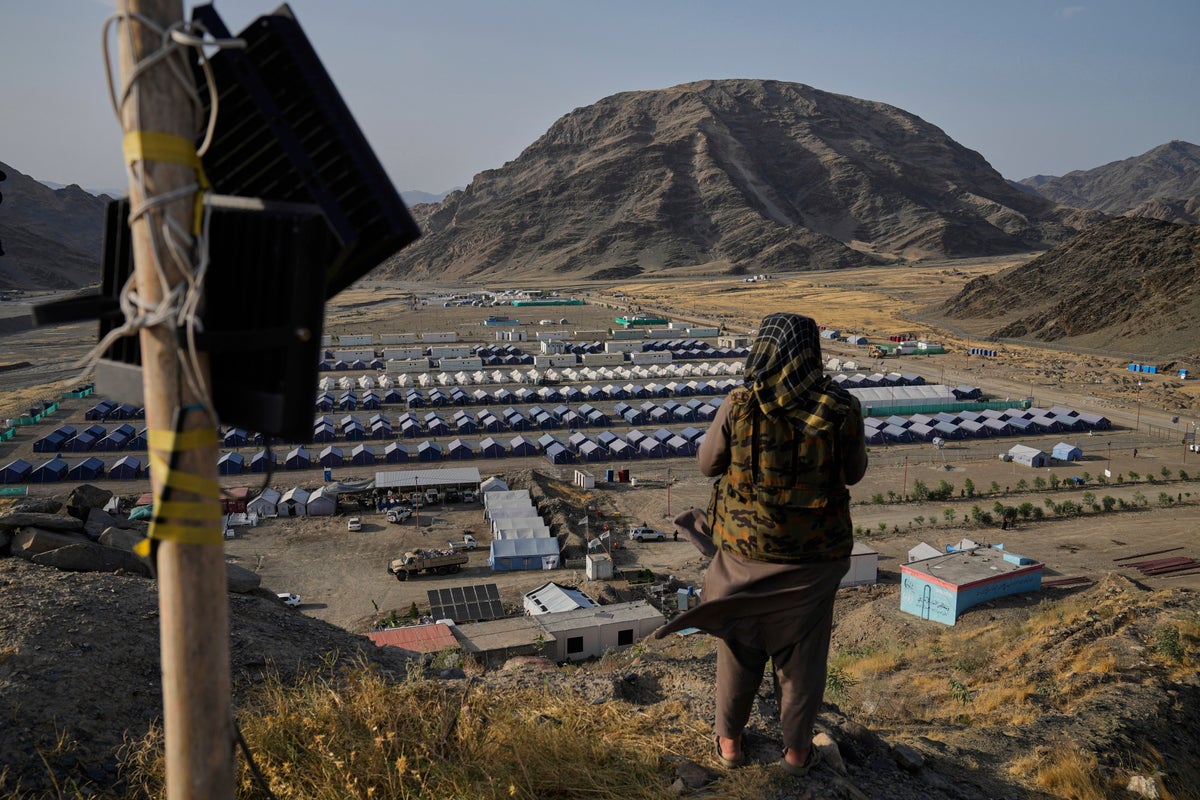Your support helps us to tell the story
From reproductive rights to climate change to Big Tech, The Independent is on the ground when the story is developing. Whether it’s investigating the financials of Elon Musk’s pro-Trump PAC or producing our latest documentary, ‘The A Word’, which shines a light on the American women fighting for reproductive rights, we know how important it is to parse out the facts from the messaging.
At such a critical moment in US history, we need reporters on the ground. Your donation allows us to keep sending journalists to speak to both sides of the story.
The Independent is trusted by Americans across the entire political spectrum. And unlike many other quality news outlets, we choose not to lock Americans out of our reporting and analysis with paywalls. We believe quality journalism should be available to everyone, paid for by those who can afford it.
Your support makes all the difference.Read more
The Taliban on Wednesday criticized neighboring countries for the mass expulsion of Afghans, as Iran and Pakistan expel foreigners who they say are living there illegally.
The two countries set deadlines and threatened them with arrest or deportation if they did not comply. They deny targeting Afghans, who make up significant numbers in both countries.
Abdul Rahman Rashid, the Taliban government’s deputy minister for refugees and repatriation, rebuked host countries for the mass expulsions and described the removal of Afghans as a “serious violation of international norms, humanitarian principles, and Islamic values.”
“The scale and manner in which Afghan refugees have been forced to return to their homeland is something Afghanistan has never before experienced in its history,” Rashid told a press conference in Kabul.
Nearly 1.8 million Afghans were forcibly returned from Iran in the past three months alone. A further 184,459 were sent back from Pakistan and over 5,000 were deported from Turkey since the beginning of the year. Additionally, nearly 10,000 Afghan prisoners have been repatriated, mostly from Pakistan.
The Ministry of Refugees and Repatriation said some 6 million Afghan refugees remain overseas.
Natural disasters have swelled Afghanistan’s refugee population. The ministry’s director for policy and planning, Mahmood al Haq Ahadi, said some 13,500 families were internally displaced due to droughts, floods, and storms.
“When combined with prior displacements, the total number of internally displaced families in Afghanistan has now reached nearly 2.5 million,” Ahadi said.
The ministry planned to send delegations to hold meetings with host countries focusing on legal support and resolving the challenges faced by Afghan asylum seekers.
“Our goal is to find sustainable solutions through dialogue and cooperation,” Ahadi said.
Humanitarian agencies have warned that the scale and pace of returning Afghans is overwhelming already fragile support systems.
